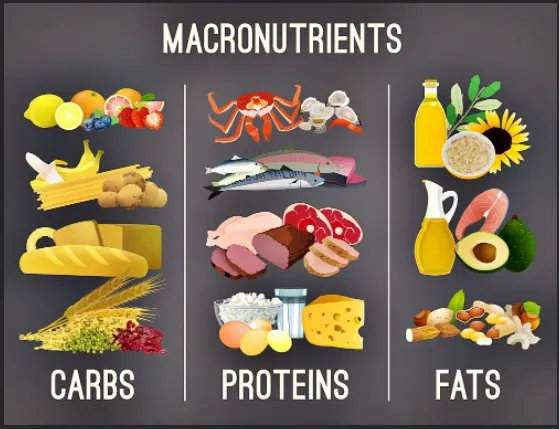
Well guys, Yesterday I posted that fast food wasn't great because it just didn't have enough protein to keep someone from getting hungry.
I used word like carbs, fat and protein without defining why each are important so today I'll give a very quick rundown on what they are.
1. Carbohydrates
These are sugars and starches which the body uses for energy. These are what the body uses for energy to keep it going. There are a variety of different types: Simple, long chain, and branched. However, at their heart these are what the body uses to provide energy for everyday tasks.
Side note: These tend to be relatively cheap so a good base for daily nutrition intake.
USDA Recommendation 45-65% of daily calories.
2. Fats
These are a denser energy storage than carbohydrates. Gram for Gram they give more than twice the energy that carbohydrates give. If you want to put on weight they are great because minimal eating give maximum calories. Unfortunately if you want to lose weight they aren't great. There are lots of different types again: saturated, unsaturated, polyunsaturated, and unfortunately trans.
Side note: These tend to give a creamy rich texture to dishes and drinks so great for extra flavour. More expensive than carbs on average but not as expensive as protein.
USDA Recommendation 10-35% of daiy calories.
3. Proteins
These are long chain amino-acids and can be classified as complete (all amino acids) or incomplete (not all the different amino acids). Proteins can be used by the body for energy but they are more important for the body to grow and repair itself. If the body wants to build muscle it needs protein. Make enzymes or repair tissue again protein provides the building blocks for that.
Side note: Protein in a meal is a big portion of whether the food will be satisfying or filling. Not enough protein and your just asking to feel hungry. Not enough protein and the body just won't run efficiently. Very important but also the most expensive macronutrient.
USDA Recommendation : 10-35% of daily calories.
Now while 10% protein may be able to keep you healthy, 25+% can help you feel more full so less hungry all the time.
4. Fiber
Technically not a nutrient because the body doesn't really derive nutrition from it. It does add bulk to a meal though. More bulk means feeling full for longer. Great for weight loss because it has no calories and helps people feel full.
Now that's just a very very brief overview. Entire books have been written on the subject and people have spent a very long time figuring out all the different types and variations of these.
In addition there are lots of other important parts in food including vitamins, minerals, phytonutrients, pre/probiotics and so much more.
However, balancing the macronutrients is a good starting point.
For the diet I'm going to start and when I'm evaluating different meals in the future I'm going to compare to 50% carbs (1000Cal/day=250g), 25% Protein (500cal/day=125g) and 25% Fats (500cal/day=56g).
Thanks for reading.